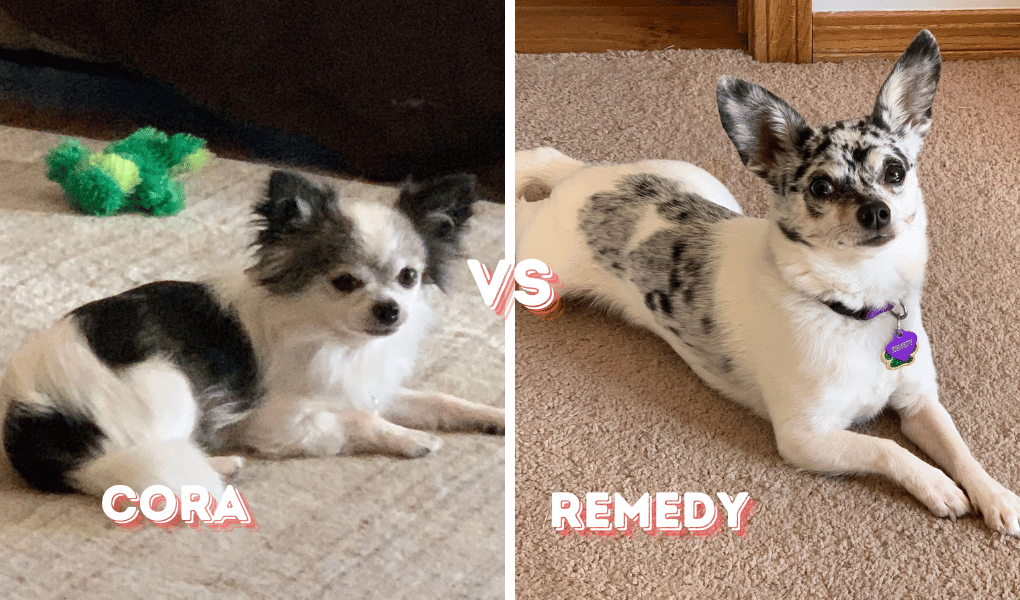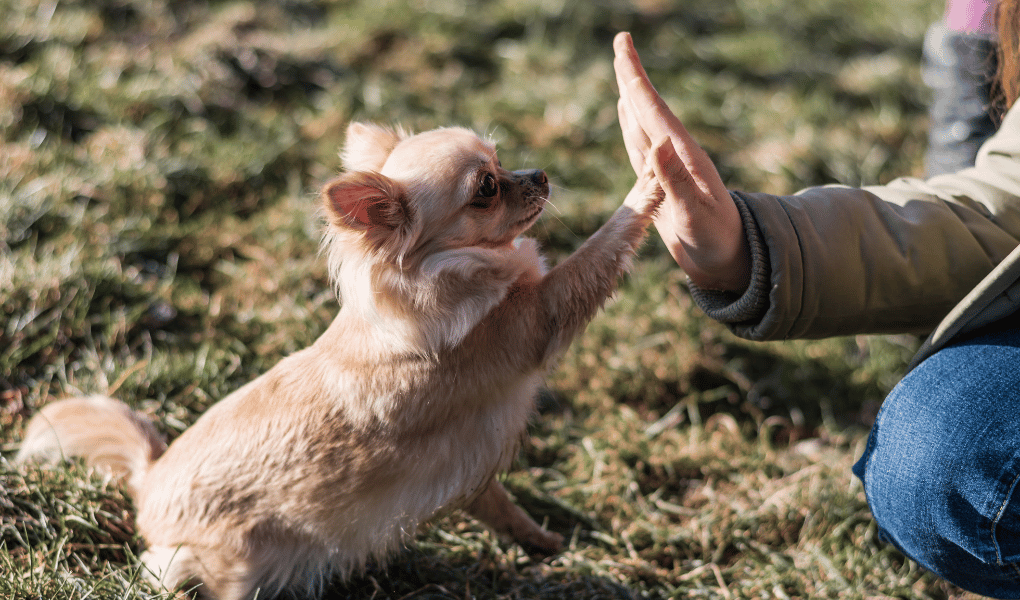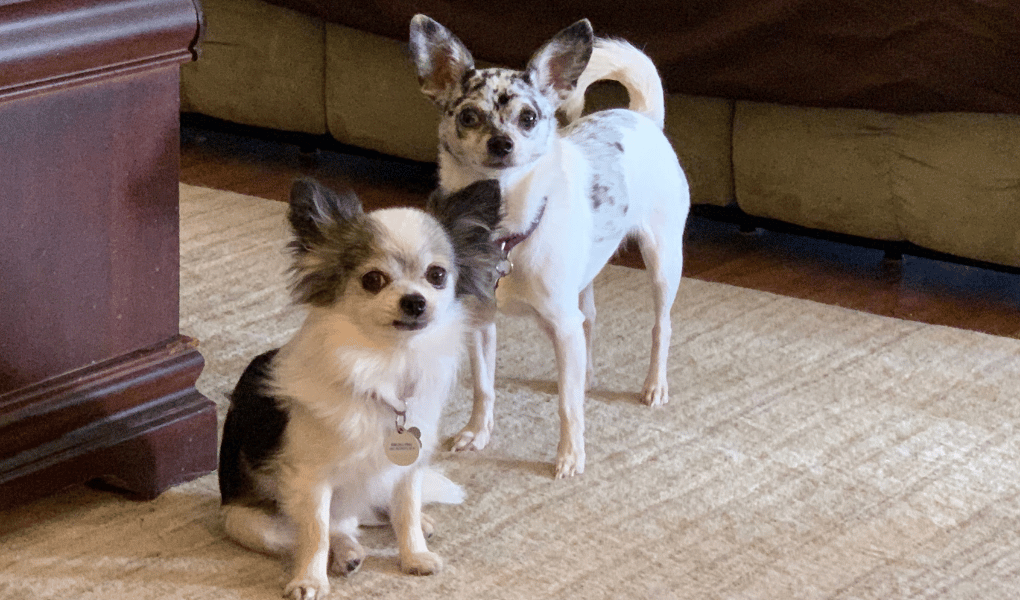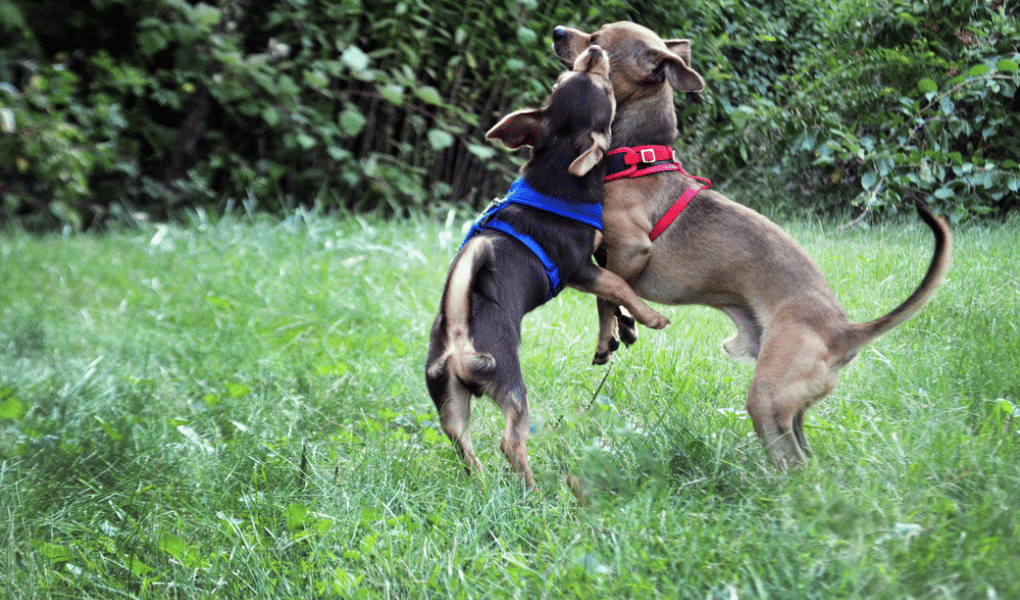Bringing multiple dogs into your home can be a joyful and rewarding experience. However, it can also be challenging if your furry friends don’t get along. Dogs, like people, have unique personalities and sometimes, conflicts arise. If you find yourself in the midst of canine conflict, don’t worry. Here’s a comprehensive guide to fostering harmony among your pets. Whether you have a household ofChihuahuas as I do or a Chihuahua with siblings of other breeds these are essential tips for a peaceful & harmonious home for everyone.
OUR PERSONAL EXPERIENCE
I speak from experience. I had a huge problem on my hands when we brought Cora home. We adopted Cora on September 18, 2020. We had just lost our Chico on July 17, 2020. At that time we then had Pebbles, age 14, and Remedy, age 5. Cora was 6 when we adopted her.
It was nothing but peace and harmony for about a month. But when Remedy realized that this darn interloper was not going away, she didn’t like it. Thus the fighting began. It was Remedy vs Cora, round 1. Then 2, Then 3 . . . Thankfully, I knew what to do, but I wanted to help others who may have this problem.
Most people think that if they introduce their dogs the right way and all is peaceful then there will never be an issue. This as in my case is not always true. So, lets get this party started and let’s talk about what to do when you find yourself in this situation.

UNDERSTANDING THE ROOT CAUSE
Before addressing the issue, it’s crucial to understand why your dogs might not be getting along. Common reasons include:
- Territorial Behavior: Dogs can be territorial and may feel threatened by the presence of another dog
- *Resource Guarding: This occurs when dogs compete for food, toys, or even your attention.
- Lack of Socialization: Dogs that haven't been properly socialized may struggle to interact with other dogs.
- Personality Clashes: Just like humans, not all dogs will naturally get along due to differing personalities.
- Medical Issues: Sometimes, underlying health problems can cause irritability and aggression.
IMMEDIATE STEPS TO TAKE
When you notice tension or aggression between your dogs, take these immediate steps to prevent any escalation
- Separate Them Safely: If a fight breaks out, do not physically intervene. Use loud noises or water to distract them and separate them into different rooms until they calm down.
- Assess the Situation: Try to identify the trigger for the conflict. Was it over a toy, food, or space? Understanding the trigger can help in managing future conflicts.
LONG TERM STRATAGIES for peace & harmony
Once the immediate threat is managed, it’s time to implement long-term strategies to insure a peaceful coexistence.
1. Create Separate Spaces
Ensure each dog has its own space where it feels safe. Separate feeding areas, beds, and toys can reduce competition and promote a sense of security.
2. Structured Introductions
If you’re introducing a new dog to your home, do so gradually. Start with neutral territory introductions and observe their body language. Gradually increase their time together under supervision.
3. Positive Reinforcement
Use positive reinforcement to reward good behavior. When your dogs interact calmly, praise them and offer treats. This helps them associate positive outcomes with being around each other.

4. Regular Exercise and Mental Stimulation
A tired dog is a happy dog. Ensure all your dogs get ample exercise and mental stimulation. This reduces pent-up energy that can lead to aggressive behavior.
5. Obedience Training
Enroll your dogs in obedience training classes. Training reinforces good behavior and helps you maintain control. It also provides structured socialization opportunities.
6. Desensitization and Counter-Conditioning
If your dogs have specific triggers, gradually expose them to these triggers in a controlled manner while offering positive reinforcement. This method helps them build a positive association with previously negative experiences.
7. Seek Professional Help
If conflicts persist, consult a professional dog trainer or a veterinary behaviorist. They can provide personalized strategies and interventions tailored to your dogs’ specific needs.
This may not cost as much as you think and the investment is worth the price. Happy dogs and a peaceful home is priceless.
When dealing with dog conflicts, avoid these common pitfalls:
When dealing with dog conflicts, avoid these common pitfalls:
- Punishment: Punishing your dogs for aggression can worsen the behavior. Focus on positive reinforcement instead
- Favoritism: Showing favoritism can heighten jealousy and tension. Ensure you divide your attention equally.
- Ignoring Warning Signs: Pay attention to subtle signs of discomfort or tension. Early intervention can prevent full-blown fights.
Patience is Key
Building a harmonious multi-dog household takes time and patience. Progress may be slow, and there will be setbacks. Consistency, understanding, and love are your best tools in creating a peaceful pack.

CONCLUSION
Having multiple dogs that don’t initially get along can be challenging, but it’s not insurmountable. By understanding the root causes, taking immediate safety steps, and implementing long-term strategies, you can foster a harmonious environment where your dogs can thrive together. Remember, every dog is unique, and what works for one might not work for another. Stay patient, stay positive, and seek professional help if needed. With time, your home can be a place where all your furry friends coexist happily.
As far as our house goes, we are again a peaceful home of 4 fabulous Chihuahuas. The three get along famously (Cora, Winston, & Lily). As for Remedy & Cora — we practiced “long-term strategies”, 1, 3, 4, and 6, avoided all the pitfalls and we again are a peaceful harmonious home. They have come to terms with the fact that they are stuck together and although I wouldn’t say they are BFF’s they are friends.
